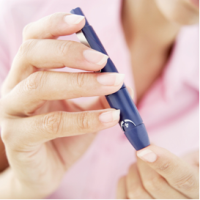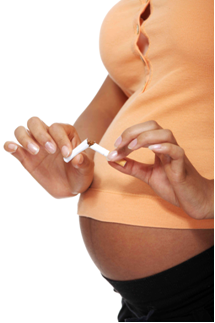Recently, Centre for Disease Control & Prevention ( CDC ) reported on important
findings about some factors that increase the risk of orofacial clefts:
-
Smoking―Women who smoke during pregnancy are more likely to have a baby with an
orofacial cleft than women who do not smoke.
-
Diabetes―Women with diabetes diagnosed before pregnancy have been shown to be an
increased risk of having a child with a cleft lip with or without cleft palate.
Risk Factors
The causes of orofacial clefts among most infants are unknown. Some children have
a cleft lip or cleft palate because of changes in their genes. Cleft lip and cleft
palate are thought to be caused by a combination of genes and other factors, such
as exposures in the environment, maternal diet, and medication use.
A cleft lip or palate occurs when the structures that form the upper lip or palate
fail to fuse together properly when a baby is developing in the womb.
The causes may be genetic (internal) or environmental (external), although it is
most often thought to be a combination of these factors. In most cases of cleft
lip or palate, there is no recognizable cause.
Inherited Genes
Research indicates that the genes a child inherits from their parents can make them
more vulnerable to developing a cleft lip or palate. Researchers have identified
a number of genes that may be responsible.
In some cases, there is a family history of clefts, although most children of parents
with clefts will not develop clefts themselves.
Environmental Risk Factors
A number of environmental risk factors have been identified that may increase a
child’s chance of being born with a cleft lip or palate. These are outlined below.
Maternal smoking
A mother who smokes during pregnancy increases her baby’s chance of being born with
a cleft. The risks from passive smoking are not fully known, but it is a good idea
to avoid breathing in high levels of second-hand smoke.
Maternal Alcohol Consumption
Some studies have shown a link between a mother’s alcohol consumption during pregnancy
and the development of a cleft lip and palate in her baby.
Maternal Obesity
Mothers who are obese have a higher chance of their child being born with a cleft.
Poor nutrition during pregnancy can also increase the risk.
Lack of Folic Acid During Pregnancy
All pregnant women are advised to take a daily supplement of folic acid during the
first four months of pregnancy. Folic acid helps reduce the possibility of birth
defects, such as spina bifida (a series of birth defects that affect the development
of the spine and nervous system) and cleft palate.
Medications During Pregnancy
It has been suggested that some medications taken during pregnancy may increase
the risk of cleft lip and palate. These include:
- methotrexate, a medicine that is used to treat cancer, arthritis and psoriasis
- isotretinoin, a medicine that is used to treat acne
- anti-seizure medicine
It has been suggested that some medications taken during pregnancy may increase
the risk of cleft lip and palate. These include:
Pierre Robin Syndrome
Pierre Robin syndrome is a rare condition where a baby is born with an abnormally
small lower jaw that causes the tongue to fall backwards in their throat (glossoptosis).
This can result in obstruction and breathing difficulties.
Most infants with Pierre Robin syndrome will also have a cleft palate, which can
usually be repaired with surgery. However, sometimes the surgery has to be delayed
if there are continuing issues with airway obstruction.






